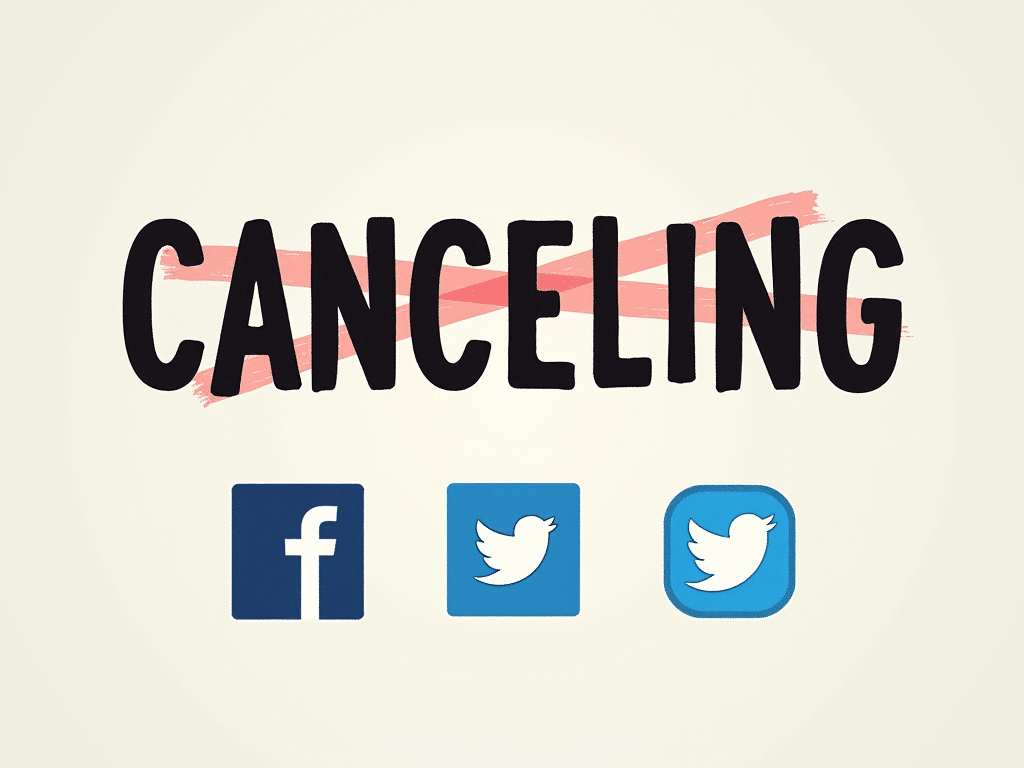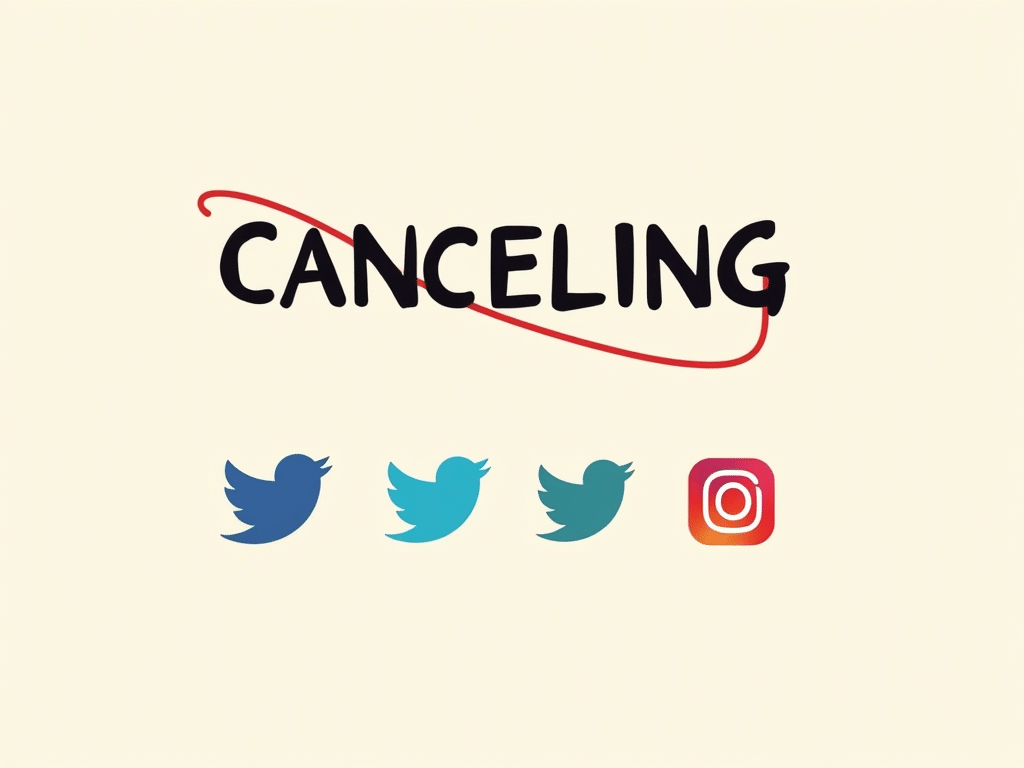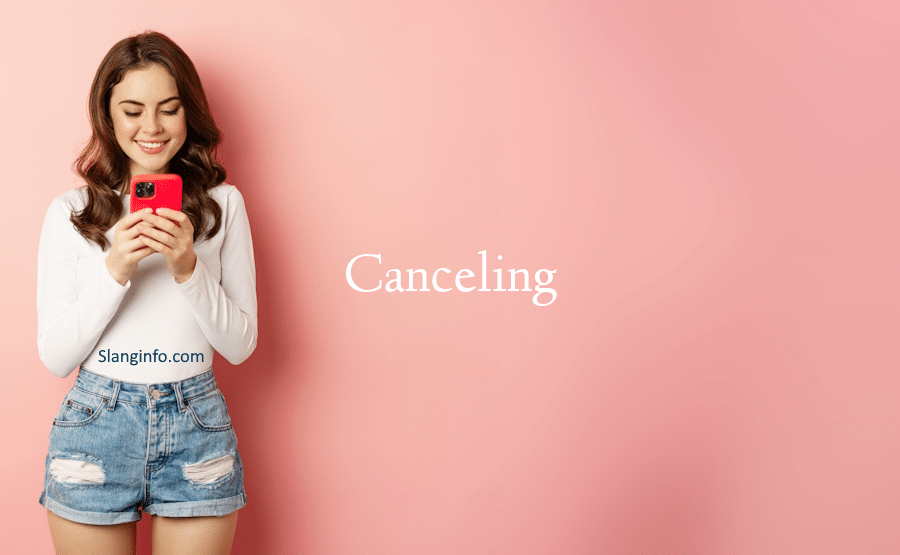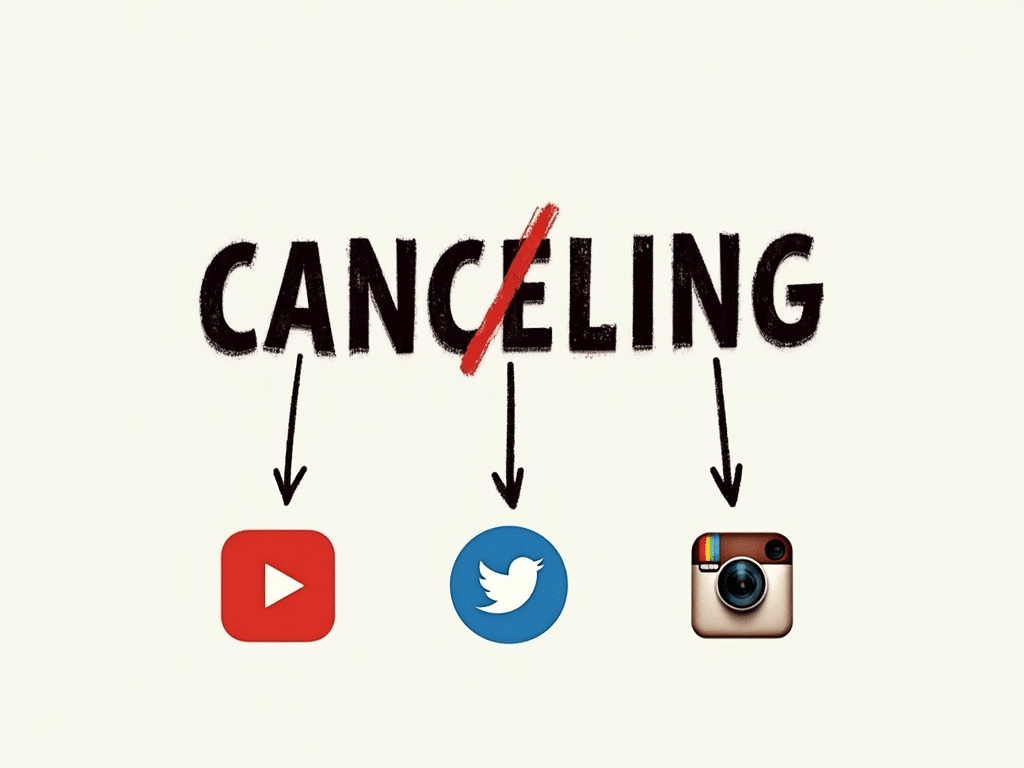Hey there, internet explorers! 👋 Today, we’re diving into one of the hottest topics in the digital world: canceling. You’ve probably heard the phrase “XYZ is canceled” more times than you can count. But what does it really mean? And why does it seem like everyone’s getting canceled these days? Buckle up, because we’re about to unpack this wild ride of social media justice.
| Key Takeaways | Description |
|---|---|
| Definition | Public withdrawal of support for individuals or entities due to objectionable behavior |
| Origin | Evolved from social media call-outs and boycotts |
| Impact | Can affect reputations, careers, and public discourse |
| Controversy | Debates over effectiveness, fairness, and potential for misuse |
| Cultural Significance | Reflects changing social norms and power dynamics in the digital age |
Canceling: Understanding the Modern Social Phenomenon

The Birth of the Cancel Culture
Alright, let’s rewind the clock a bit. “Canceling” didn’t just pop up overnight like some viral dance challenge. It’s been brewing for a while, evolving from earlier forms of public shaming and boycotts.
The term “cancel” in this context started gaining traction around 2015, primarily in Black Twitter communities. It was often used as a way to call out problematic behavior, especially from public figures. Think of it as the internet’s way of saying, “Nah, we’re done with you.” 🙅♂️
But here’s where it gets interesting: canceling isn’t just about individuals. Brands, movies, even entire concepts can get the cancel treatment. Remember when everyone was trying to cancel 2020? (If only it were that easy, right?)
How Canceling Works: The Anatomy of an Internet Takedown
So, how does canceling actually go down? Let’s break it down:
- The Trigger: Someone (usually a public figure) says or does something controversial.
- The Callout: People on social media start pointing out why it’s problematic.
- The Snowball: More and more people join in, often using hashtags to spread the word.
- The Consequences: The target might lose followers, sponsorships, or even their job.
It’s like a digital version of those old-school angry mobs with pitchforks, except instead of pitchforks, we’ve got hashtags and retweets.
The Power of the People (and Their Keyboards)
Now, you might be thinking, “Why should I care about some randos on Twitter getting mad?” Well, here’s the thing: canceling has real-world consequences. It’s not just about spilling tea anymore.
Take the #MeToo movement, for example. What started as people sharing their stories on social media led to actual changes in how society deals with sexual harassment. That’s the power of canceling at its best – giving a voice to those who’ve been silenced and holding powerful people accountable.
But it’s not all sunshine and justice. Canceling can also go too far, turning into a digital witch hunt. I once saw a friend get dogpiled online for an innocent misunderstanding. It was like watching a car crash in slow motion – painful and hard to stop once it started.
The Motivations: Why Do People Cancel?

Alright, let’s get into the nitty-gritty. Why do people jump on the cancel bandwagon? There are a few main reasons:
- Justice Seeking: Some folks genuinely want to make the world a better place by calling out bad behavior.
- Virtue Signaling: Others might join in to show they’re on the “right” side of an issue.
- Mob Mentality: Sometimes, people pile on just because everyone else is doing it. FOMO is real, even in canceling.
- Personal Vendettas: Occasionally, canceling becomes a way to settle scores or take down rivals.
It’s a mixed bag, really. Like most things on the internet, the motivations behind canceling can range from super noble to pretty petty.
The Impact: When Canceling Gets Real
Now, let’s talk about the elephant in the room – what happens when someone actually gets canceled? The effects can be pretty intense:
- For Individuals: It can mean lost jobs, damaged reputations, and serious mental health impacts.
- For Brands: We’re talking boycotts, plummeting sales, and major PR nightmares.
- For Society: It’s changing how we talk about issues and hold people accountable.
I remember when a local business in my town got “canceled” over a misunderstanding. The owner had made a comment that was taken out of context, and suddenly their social media was flooded with angry messages. It took weeks to clear things up, and the business is still recovering.
But it’s not all doom and gloom. Sometimes, canceling leads to positive changes. We’ve seen companies improve their policies, public figures become more aware of their impact, and important conversations start because of cancel culture.
The Great Debate: Is Canceling Good or Bad?

Alright, here’s where things get spicy. The cancel culture debate is hotter than a fresh TikTok trend, and everyone’s got an opinion. Let’s break it down:
The Pro-Cancel Camp says:
- It holds powerful people accountable
- It gives a voice to marginalized groups
- It can lead to real social change
The Anti-Cancel Crew argues:
- It’s mob justice without due process
- It doesn’t allow for growth or redemption
- It can be used as a weapon for personal vendettas
Honestly? Both sides have some valid points. It’s not as simple as “canceling good” or “canceling bad.” Like most things in life, it’s complicated.
When Canceling Goes Wrong: The Dark Side of Digital Justice
Now, let’s talk about when canceling takes a wrong turn. Because, TBH, it happens more often than you’d think.
- Misinformation Spreads: Sometimes, people get canceled based on false or incomplete information. It’s like a game of telephone gone horribly wrong.
- Disproportionate Response: Ever seen someone’s life get ruined over a dumb tweet from 10 years ago? Yeah, that’s not cool.
- The Wrong Target: Occasionally, the internet’s detective skills aren’t so great, and innocent people get caught in the crossfire.
- Mental Health Impacts: Being on the receiving end of a cancel campaign can be seriously traumatic. We’re talking anxiety, depression, the whole nine yards.
I once saw a friend get “canceled” in our school over a rumor that turned out to be totally false. By the time the truth came out, the damage was already done. It was a harsh reminder that the internet never forgets, but it doesn’t always remember accurately.
Canceling vs. Accountability: Finding the Balance
Here’s the million-dollar question: How do we hold people accountable without turning into a digital lynch mob? It’s tricky, but not impossible. Here are some tips:
- Check Your Sources: Before you hit that retweet button, make sure you’ve got the full story.
- Consider the Context: Was it a one-time mistake or a pattern of behavior? Is it recent or from years ago?
- Allow for Growth: People can change. If someone genuinely apologizes and tries to do better, maybe give them a chance?
- Focus on the Issue, Not the Person: Address the problematic behavior without resorting to personal attacks.
- Promote Education Over Punishment: Sometimes, helping someone understand why their actions were harmful is more effective than just yelling at them.
Remember, the goal should be to make the world better, not just to punish people.
The Future of Canceling: Where Do We Go From Here?
So, what’s next for cancel culture? Will it keep evolving, or will we find a new way to hold people accountable? Here are some possibilities:
- More Nuanced Approaches: We might see a shift towards more constructive call-outs that focus on education and growth.
- Platform Changes: Social media sites could implement features to slow the spread of cancel campaigns and fact-check accusations.
- Legal Implications: There might be more discussions about the legal aspects of canceling, especially when it comes to defamation and harassment.
One thing’s for sure – as long as we have social media, we’ll have some form of public accountability. The question is, how can we make it fair and effective?
The Takeaway: Navigating the Cancel Culture Landscape
Alright, let’s wrap this up. Here’s the deal with canceling:
- It’s a powerful tool for social change, but it can also be misused.
- It reflects our desire for justice, but sometimes goes too far.
- It’s changing how we interact online and hold each other accountable.
So, what should you do when you see a cancel campaign brewing?
- Think critically: Don’t just jump on the bandwagon. Do your research.
- Be empathetic: Remember, there are real people behind those screens.
- Focus on growth: Aim for education and improvement, not just punishment.
- Use your power wisely: Your voice matters. Make sure you’re using it for good.
At the end of the day, canceling is just one part of our complex digital world. It’s up to us to figure out how to use it responsibly and effectively. So next time you see #XIsOverParty trending, take a moment to think before you tweet. Your future self (and the internet) will thank you.
Stay curious, stay kind, and keep questioning the world around you. That’s the real key to making positive changes – online and off. ✌️
Want to dive deeper into the world of internet culture? Check out our articles on Gen Z slang and internet trends. Trust me, your group chats will never be the same!







